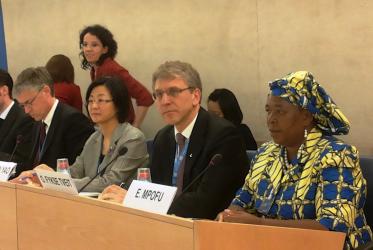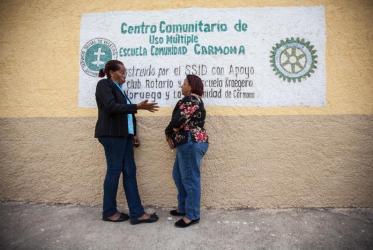Displaying 81 - 100 of 138
Panel discussion fields ideas on European identity
26 April 2016
“No decision about us without us”
09 November 2015
Faith communities urge U.S. to resettle more Syrian refugees
14 September 2015
Reclaiming our humanity
23 June 2015
WCC mourns the death of Leopoldo Niilus
10 February 2015
Church leaders address statelessness in Dominican Republic
03 February 2015
Towards accessible and inclusive societies and churches in Latin America
15 September 2014











